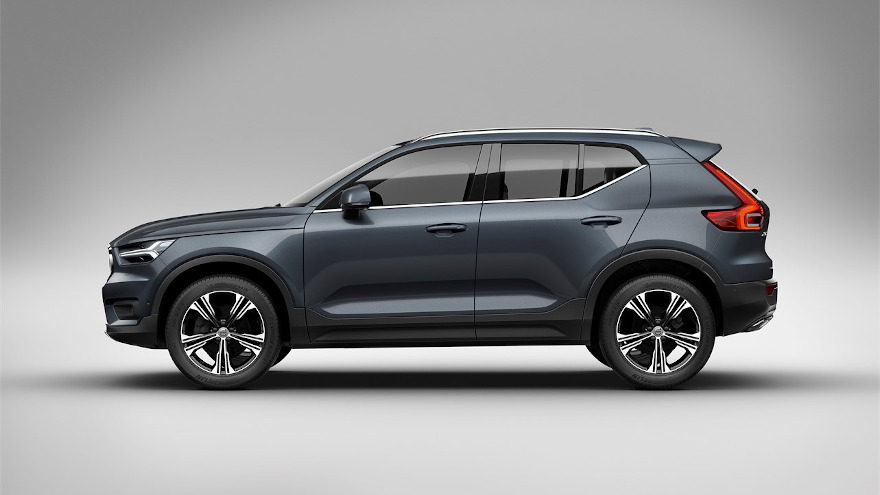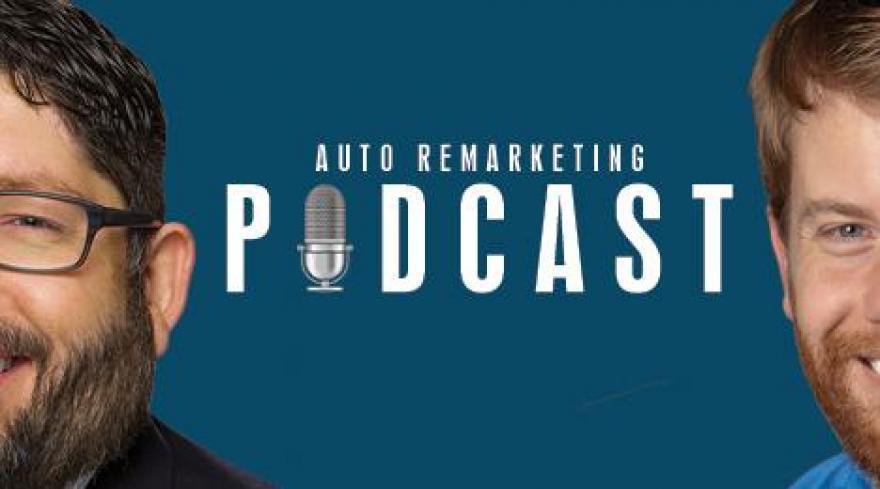More stolen vehicle recovery (SVR) and innovative automotive services that dealers can offer are arriving nationwide this spring.
LoJack, part of the fintech portfolio at CalAmp, recently announced the launch of the LoJack Connect family of subscription services. The company highlighted the new LoJack offering rounds out its comprehensive suite of inventory management, SVR and connected car services. LoJack Connect can help dealers improve the customer experience with advanced connected car services they can upsell to consumers to enhance profitability, while simultaneously delivering on the proven LoJack brand promise of safety, security and peace of mind to their customers.
LoJack Connect subscription services for consumers include the LoJack SureDrive connected car app and is offered in three- and five-year plans, that come with a limited period of complementary service.
Like all LoJack solutions, the first bundle of LoJack Connect is focused on driver safety and security, and includes key features such as:
— CrashBoxx: Can send instant crash alerts to loved ones with trained U.S.-based agents available to help provide timely assistance and facilitate emergency response
— Tripwire Early Warning: Can enable proactive monitoring and alerts the consumer of unexpected car movement, such as when it is being towed or stolen
— Stolen Vehicle Location Assist: Can provide trained U.S.-based agents to coordinate directly with law enforcement to help track and locate a stolen vehicle
—Virtual Boundaries: Can allow consumers to set easily configurable boundaries that send notifications when loved ones arrive at their destination
— Speed Alerts: Can enable parents to set a threshold and receive alerts if a loved one goes faster than they should
— Trip History: Can produce reports on past trips, locations, speed and miles traveled for business or personal use on any vehicle in the account
— Where’s My Car: Can deliver real-time location of a vehicle, whether driving or parked
— Destination Search: Can display integrated and searchable landmarks such as emergency rooms, gas stations, car washes or other key destinations
— Roadside Assistance: Can provide flat tire, jump start, out of gas, lockout and towing services
— ID Theft Protection: Can offer personal information and data protection
The company explained LoJack Connect complements the existing LoJack Classic services. Officials pointed out the LoJack Stolen Vehicle Recovery System consistently can deliver a 90% plus recovery rate on cars, trucks and SUVs, resulting in more than $1 billion worth of LoJack-equipped vehicles being recovered in the U.S. alone.
In addition, LoJack LotSmart is included with all pre-installed LoJack Connect offerings. With LotSmart, dealers can gain greater visibility into their vehicle inventory to streamline operations with the ability to monitor vehicle health, schedule maintenance, and get alerts when vehicles leave and return to the lot.
“The new LoJack Connect family of subscription services delivers the most comprehensive suite of SVR and connected car offerings in the market for dealers and consumers alike. We are helping dealer groups nationwide significantly improve the customer experience with greater visibility into their vehicle inventory along with a valuable solution they can upsell to their customers for increased profitability,” CalAmp chief executive officer Michael Burdiek said in a news release.
“For decades we have provided vehicle owners peace of mind and we continue to expand on our value proposition with compelling services,” Burdiek continued. “Whether collaborating directly with local law enforcement to locate a stolen vehicle or coordinating with emergency response personnel to provide crash assistance, we have the right LoJack service for all drivers nationwide.”
Before 2019 closed, another Software-as-a-Service (SaaS) company targeting buyers in the automotive retail industry released its proprietary search engine fueled by artificial intelligence (AI).
And it’s a solution that’s designed to function similar to how music might flow through your favorite streaming service.
The leadership team at myautoIQ said its technology can provide targeted customer acquisition and personalized engagement to dealers across the United States. The company explained myautoIQ uses behavioral predictions, targeted recommendations and lead scoring to help auto businesses improve customer acquisition, retention and satisfaction.
The solution is designed to provide three key capabilities to dealers, including:
— Identify: Dealers can now target customers in specific regions for specific vehicle models and options.
— Score: Scan, score and identify sales leads from incoming opportunities in real-time.
— Engage: Provide behavioral predictions and recommendations for customer engagement.
The company’s software is powered by an AI-engine that uses machine and deep learning and data science algorithms to provide targeted, accurate data on potential customers. The company’s AI-engine works on a proprietary big data model combining offline and online attributes of buyers.
The result is this powerful technology can provide behavioral predictions, scoring, and recommendations for the U.S. vehicle-buying population, according to myautoIQ.
The compamy noted its intelligence is delivered through a SaaS platform that works simultaneous to customer interaction within the auto business workflow. The software’s predictions include:
— Which vehicle the customer is likely to buy next
— Customization preferences
— How much each customer is likely to pay
— Which vehicle in inventory fits the buyer’s profile
— Dozens of other metrics that can improve automotive sales
“This data-backed tech changes how franchise and independent dealers engage and acquire their customers,” myautoIQ said in a news release. “Auto dealers today are heavily reliant on customers finding them, whether through posting inventory online or in their broad marketing efforts.
“myautoIQ makes things easier and more effective by enabling dealers to reach out to the right customer for the right car at the right time,” the company continued.
Vikrant Pathak, chief executive officer and chief data scientist at myAutoIQ, acknowledged that dealers are flooded with thousands of opportunities generated through online inventory placement. Pathak insisted myautoIQ’s behavior prediction models can predict a score for every lead and customer in real-time to identify the dealer’s top leads, providing them with data and insights needed to make every sale a success.
“Over the past few years, we have seen the power of AI and machine learning working the right big-data and transforming online business model,” Pathak said.
“Customers are hooked on their favorite media streaming and online shopping channels,” he continued. “Think of myautoIQ as your favorite movie or music channel, only instead of recommending a film, it recommends potential customers in your target area. And instead of scoring movies or music for you, it scores your leads to identify likely buyers.
Pathak went on to say, “myautoIQ does not need dealer data or complex integrations to get started. It comes packaged with proprietary big data for the U.S. auto-buying population, along with pre-built connections to online inventory placement platforms.”
For more details, go to myautoIQ.com.
Instead of dealers walking around with wads of cash in their pockets to give to potential car buyers and service drive customers, findings from a recent study conducted by daVinci Payments described different approaches dealerships could be using.
The study found that customers in the market for a new vehicle can be significantly incentivized to take a test drive or visit the dealership for vehicle service on a continued basis, by pairing these activities with a prepaid monetary reward.
With 49% of individuals surveyed intending to purchase a vehicle in the next 18 months, daVinci Payments explained this study can provide dealerships with insights on how to encourage customers to push past intent to purchase a vehicle, as well as retain those customers after the point of sale for ongoing parts and services transactions.
The study also found that respondents prefer open-loop prepaid rewards to retailer gift cards or repair discounts. This response extends to a preference for receiving a lower-valued prepaid reward over additional dollars off of the vehicle sticker price or monthly lease rate.
Key findings from the study include:
— 92% of intenders (those planning to buy a new vehicle in the next 18 months) said they would use a $25 virtual prepaid reward that was texted to their phone after a test drive.
— 89% of intenders would use a special service offer that accompanies a prepaid reward.
— 53% of intenders would prefer getting a $15 prepaid reward for each scheduled maintenance visit rather than receiving a 10-percent discount on each maintenance appointment.
— 50% of Generation Z and millennials would bring their vehicle to the dealership for prevention maintenance for a $35 prepaid reward upon arrival.
With only 30% of the average dealership’s revenues coming from vehicle sales and the larger portion of annual revenue coming from service contracts and parts and service sales, daVinci’s study highlighted the opportunity to use open-loop prepaid rewards to increase repeat revenue and grow existing customer bases.
For example, dealerships see a 10% increase in closing rates when taking a prospective customer on a test drive, therefore, “a minimal investment in monetary rewards used as an incentive to take a test drive can result in significant vehicle sales that in turn can drive service when offers accompany test drive reward,” daVinci Payments said.
Even Gen Z and millennials, who daVinci Payments said are notoriously difficult to steer towards brick-and-mortar, deem a prepaid reward incentive enough to bring their vehicle in for prevention maintenance.
Rodney Mason, daVinci Payments’ chief revenue officer closed by stressing that, as dealers know, every face-to-face touchpoint with a buyer serves to build the relationship and present new opportunities to upgrade the client’s driving experience.
“It’s difficult to ignore that 92% of those who intend to buy a car in the next 18 months would complete a test drive for as little as $25 on a virtual prepaid card,” Mason said.
“Their propensity to accept and use virtual rewards and special offers that accompany them, provides dealers with much greater flexibility and value in executing incentives versus just a few years ago,” he went onto say.
The complete study completed by daVinci Payments can be downloaded here.
As much as dealers and finance companies are taking advantage of technology, the J.D. Power 2019 U.S. Dealer Financing Satisfaction Study showed how critical of a role people still play in how stores fund their inventory needs and facilitate credit for their customers to take delivery.
With dealers confronting a rapidly changing consumer landscape in which many customers now apply for credit online before visiting a dealership, J.D. Power pointed out the experienced and empowered credit and sales personnel at captive and non-captive finance companies are becoming critical elements in the success of an automotive finance operation.
According to the annual J.D. Power study, the ability to answer dealer questions correctly the first time, facilitate electronic transactions and resolve contracts quickly are all key to helping dealers successfully navigate the changing marketplace.
“Dealers are able to put together more attractive, seamless transactions for their customers when they are able to work in lock-step with lenders they trust to deliver fast, accurate and competitive products,” said Jim Houston, senior director of automotive finance intelligence at J.D. Power.
“That relationship becomes more important as vehicle sales slow and more buyers may seek to secure financing outside of the dealership,” Houston continued in a news release. “Credit analysts and sales personnel perform some of the most important functions for dealers looking to match customers purchase with the right financial transaction.
When these teams are available, knowledgeable and empowered, they improve dealer satisfaction and enhance the lender’s value proposition,” he went on to say.
The 2019 U.S. Dealer Financing Satisfaction Study is based on 16,870 retail credit and 2,117 floor plan provider evaluations from dealer personnel, a 17% increase in response rate from the 2018 study. The study was fielded in April and May of this year, measuring dealer satisfaction in three segments of finance companies: non-captive, captive mass market and floor planning.
The non-captive analysis evaluates the dealer/finance company relationship across three factors:
— Relationship
— Provider offerings
— Application/approval process.
In the captive segment, four factors are evaluated, including:
— Relationship
— Provider offerings
— Application/approval process
— Lease return
Three factors are measured in the floor planning segment, including:
— Relationship
— Portfolio management
— Provider credit line
In the captive mass market segment, Volkswagen Credit ranked highest in overall dealer satisfaction with a score of 961, followed by Subaru Motors Finance (940) and Mazda Capital Services (921).
In the non-captive segment, Citizens One Auto Finance ranked highest in overall dealer satisfaction with a score of 935, followed by TD Auto Finance (927) and Ally Financial (899).
In floor plan, Audi Financial Services and Volkswagen Credit tied for the highest score at 993. TD Auto Finance (983) ranked third.
The complete study and rankings can be found here.
The California New Car Dealers Association (CNCDA) isn’t pleased with Volvo’s subscription service, and the organization is getting state authorities involved.
According to a news release, the organization representing nearly 1,200 franchised dealerships statewide successfully convinced California’s New Motor Vehicle Board (NMVB) last week to unanimously direct the Department of Motor Vehicles (DMV) to conduct an investigation into Volvo in connection with the OEM’s subscription service — Care by Volvo (CbV).
At a public hearing before the NMVB to consider the petition filed earlier this year by CNCDA, the association presented arguments against Volvo, claiming that as a licensee of the DMV, Volvo has been in violation of the California Vehicle Code (VC) by introducing CbV.
CNCDA asserted that CbV is aimed at getting consumers to lease their vehicles directly from Volvo, instead of buying or leasing them directly from a Volvo dealership. Described by Volvo as a “subscription” program, CNCDA said CbV offers customers a two-year lease with a fixed, standardized, pre-determined monthly charge including cost of the vehicle, insurance, maintenance, road hazard protection and normal wear and tear.
CbV is currently available for two Volvo models — the XC40 and the S60. Both models are also sold and leased by Volvo dealers directly to consumers outside of the CbV program.
CNCDA also alleged that the CbV program is illegal and violates several provisions in the California VC aimed at protecting franchisees and consumers, each of which constitutes a separate ground for disciplinary action against Volvo’s DMV license under the law.
Officials said the NMVB unanimously agreed that CNCDA’s claims were warranted and directed the DMV to investigate the following specific allegations:
1. Care by Volvo creates competition between manufacturer and dealers
— CbV diverts customers away from dealers to Volvo with the ultimate goal of bypassing the franchise model entirely.
— Such business practices are prohibited under California law and undermine the fundamental purpose of California’s robust new motor vehicle regulatory system.
2. Volvo’s failure to give written notice to franchisees and the board about CbV
— The VC prohibits franchisors such as Volvo from making franchise changes that would “substantially affect the franchisee’s sales or service obligations or investment” absent 60 days’ written notice to the affected dealers and to the NMVB.
— CbV is a franchise modification as it fundamentally alters the way dealers sell vehicles and requires a notice to the franchisee and to the NMVB which Volvo did not provide.
3. The CbV program preferentially allocates vehicles and refers sales to dealerships controlled in part by Volvo
— California auto manufacturers are prohibited from giving preferential treatment to dealerships controlled by them in whole or in part.
— Volvo assigns a share of certain highly desirable, limited supply vehicles to CbV dealers to the exclusion of non-CbV dealers who are not controlled by Volvo.
4. The Care by Volvo Program Undermines the Purpose of Prohibiting Payment Packing
— CbV’s flat monthly lease amount conceals the actual cost of the CbV vehicle and the bundled services and fails to disclose that the costs will vary between CbV customers.
— California law mandates that dealers disclose, prior to contract drafting, all charges for goods and services to be added to a contract for the sale of a vehicle. Volvo seeks to escape this restriction by requiring dealers to perform its DMV paperwork.
“We are extremely pleased with the outcome of the hearing and are encouraged that the New Motor Vehicle Board agreed that all four of our claims against Volvo deserve DMV investigation. This is just the first step in ensuring that manufacturers, specifically Volvo, stop going around their franchisee business partners in an attempt to retail vehicles directly. Franchise laws exist to protect dealers from this type of behavior,” California New Car Dealers Association president Brian Maas said in the news release.
“Our dealer members support innovation, including subscription-based models, but we are against violating the law,” Maas continued. “There is a right way and a wrong way to do business in California, Care by Volvo is the wrong way.
“We look forward to the results of DMV’s thorough investigation into our claims and are hopeful that this illegal behavior will be stopped and punished,” he went on to say.
The NMVB also requested the DMV provide the board with a written report on the results of its investigation within 180 days.
For more information and details of the petition, go to this website.
Along with offering an update on how its uniFI platform has been adopted, Dealertrack’s Cheryl Miller joined Nick for another podcast to discuss how dealerships and finance companies are answering the call to respond to consumer demand for transparency and ease of use.
The senior vice president and general manager for Dealertrack F&I and Registration and Titling Solutions also touched on what trends are piquing her interest most for the rest of the year.
The full discussion can be found below.
Download and subscribe to the Auto Remarketing Podcast on iTunes or on Google Play.
You can also listen to the latest episode in the window below.
Catch the latest episodes on the Auto Remarketing Podcast homepage and on our Soundcloud page.








